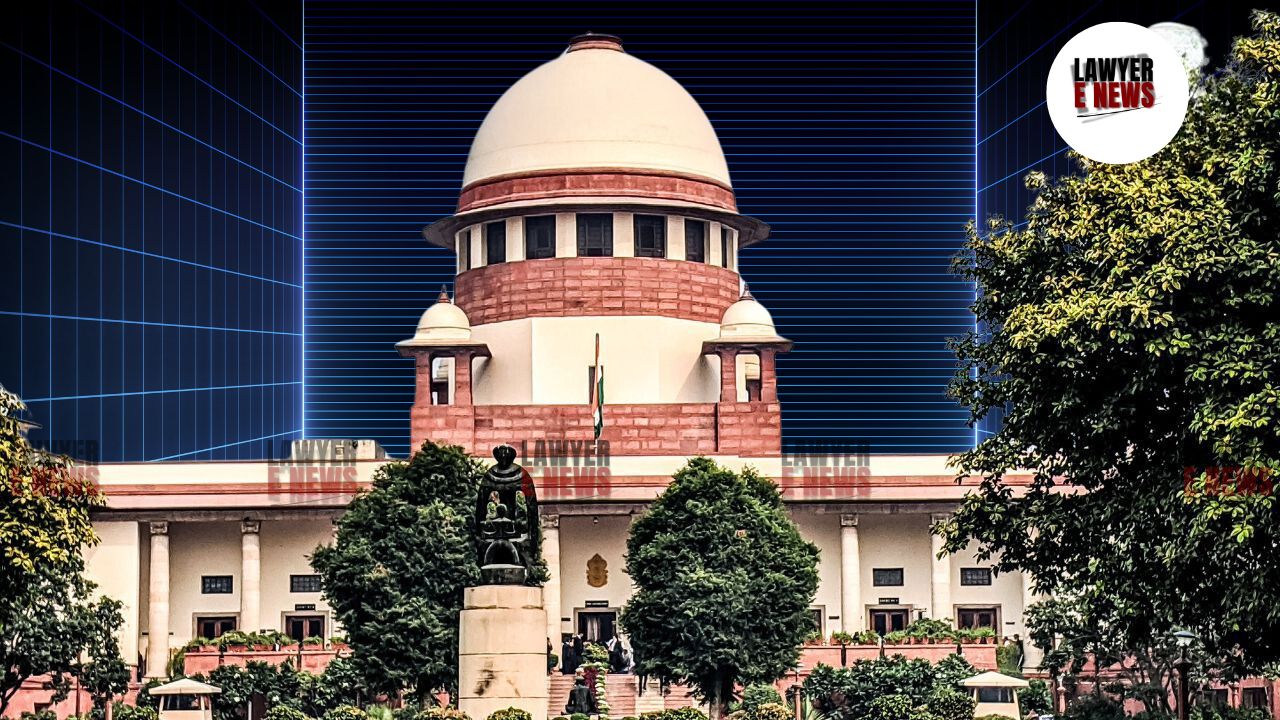-
by Admin
15 February 2026 2:36 AM



Supreme Court of India dismissed appeals seeking the quashing of criminal proceedings, reiterating that settlement between parties cannot absolve criminal liability in cases involving financial fraud and corruption. The judgment, delivered by a bench comprising Justice Vikram Nath and Justice Prasanna B. Varale, upheld the Bombay High Court's refusal to quash the FIR and chargesheet filed under Sections 409, 420, and 120B of the Indian Penal Code, 1860, and Section 13(2) read with Section 13(1)(d) of the Prevention of Corruption Act, 1988.
The appellants, directors and employees of M/s Sun Infrastructure Pvt. Ltd., had been accused of diverting loan funds, altering building plans without permission, and reducing the value of mortgaged collateral, causing significant financial losses to the State Bank of India (SBI). Though the company had settled its debt through a one-time payment and the matter before the Debt Recovery Tribunal (DRT) had been closed, the bank alleged misconduct and financial fraud, leading to the registration of an FIR in July 2020.
The appellants sought to quash the proceedings, arguing that the settlement before the DRT had resolved all disputes. However, the Supreme Court held that offenses involving public money, financial fraud, and corruption impact society as a whole and cannot be viewed merely as disputes between private parties.
The Court observed:
"Economic offenses and corruption cases involve a breach of public trust and have far-reaching consequences on the financial system and society. Such cases cannot be quashed merely because the parties have settled their civil disputes."
The Supreme Court underscored the distinctive nature of economic offenses, which extend beyond individual parties and affect the financial health of institutions and the public at large. The judgment referred to its earlier decisions in Gian Singh v. State of Punjab (2012) and Parbatbhai Aahir v. State of Gujarat (2017), which held that crimes involving financial misconduct or corruption cannot be quashed solely based on settlements.
The bench highlighted that economic offenses constitute a class apart due to their impact on public interest and the national economy. It further noted that invoking the Prevention of Corruption Act, 1988, added a layer of public interest, as corruption erodes trust in governance and public institutions.
The appellants also argued that the FIR, filed three years after the bank's complaint, was unduly delayed, and that the Prevention of Corruption Act did not apply to them. The Court rejected these arguments, emphasizing that:
Delay in lodging an FIR does not dilute the seriousness of allegations, particularly in complex financial crimes.
The Prevention of Corruption Act applies to offenses involving public servants or entities managing public funds, as alleged in this case.
The Court concluded that quashing the FIR and chargesheet would undermine the larger public interest involved in economic offenses and corruption cases. It stated:
"Criminal proceedings in cases of financial fraud and corruption serve a greater public purpose, ensuring accountability and upholding public trust. Settlements in civil disputes cannot absolve criminal liability."
The appeals were dismissed, and the Court upheld the continuation of criminal proceedings against the appellants.
Date of decision: December 20, 2024
